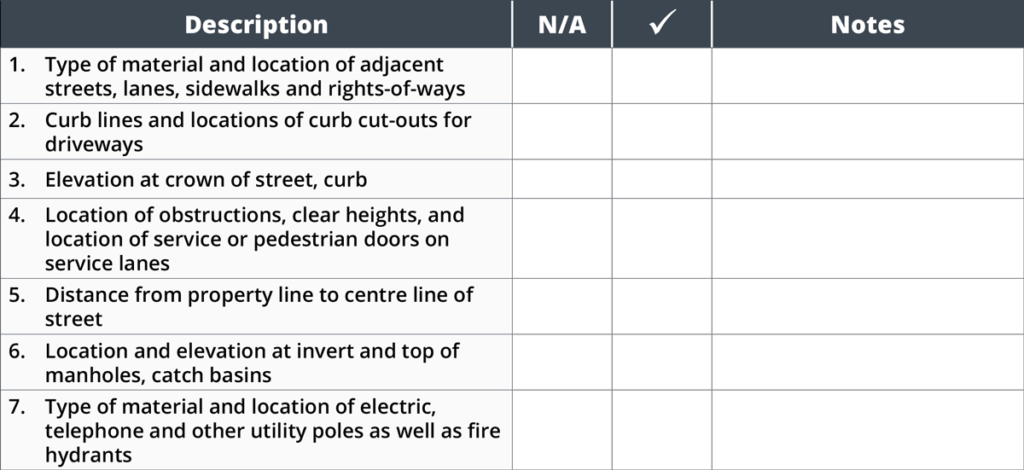By the time you get ready to break ground on your new home, you’ve already done lots of preparing — finding land, choosing your builder, getting the right permits, working with your builder on blueprints and floor plans.
Now it’s time to officially get started on the build, and you’re totally ready . . . right?
If you still feel some nerves about whether you’re totally prepared to break ground on a new home, you’ve come to the right place. This stage of the process is mostly about double checking the things you’ve already thought about, and we’re going to cover them in this article.
The sections that follow will cover 6 essential things to do before you officially break ground on your new home.
Quick Takeaways
- Even if you and your builder have seen the site separately, it’s best to visit together at least once before you break ground.
- By hiring your own surveyor to evaluate your property, you can be 100% confident about property lines and where you’re able to build.
- Have your soil tested by a professional soil engineer so ensure it’s prepared effectively to support your new home.
- Thoroughly review important documents like your blueprint and building contract to get all questions and concerns answered before breaking ground.
6 Things to Do Before Breaking Ground for Your New Home
Do a site visit with your builder
You’ve likely seen your land plenty of times, and your builder has seen plat maps and surveys you provided during the building preparation and planning process. Still, this isn’t a replacement for visiting the land together and making sure you’re 100% on the same page.
Before you break ground on your new home, schedule a time to visit the land with your builder, share any questions or concerns you may have, and let the builder do the same.
Check your utilities situation
Utilities are a huge consideration when you’re breaking ground on a new construction home. If you are building in an existing development, this will likely be a fairly seamless process — the developers should have put everything in place and communicated with builders about it. If you are building on undeveloped land, things are a bit more complicated.
Your builder should have knowledge and experience in this area, but you can also call 8-1-1 to be directed to a local agency that can identify where utility lines are and work with your builder to be sure they aren’t disturbed.
Hire your own surveyor to survey your property
Plat maps obtained through local municipalities give you a good idea of the lay of your land, but they can be outdated and thus inaccurate. For this reason, it’s best practice to hire your own surveyor to survey your property before you break ground. They are experts at researching land records, confirming property ownership, and making sure you know exactly where to build.
This process also protects you from issues confirming exact property boundaries with neighbors down the line (existing ones or those who may build near you in the future).
Here you can see an example of the specific kinds of things your surveyor will evaluate:
Test the soil
Believe it or not, the soil beneath your home plays a significant role in how safe it will be for years to come. The state of soil depends largely on the region and is impacted by both weather conditions and building that has been done in the past.
Soil that’s loose, for example, may require extra foundation support to stay firm. Areas that experience a lot of moisture may need preventative maintenance before building. All of this is done to prevent cracks in your home’s foundation later on, which is almost always very expensive to repair.
Your soil test should be performed by a soil engineer, who will take samples and evaluate its readiness for your home to be built. Ideally, you should also test your soil during construction to make sure everything is holding up as expected.
Here’s more on how professional soil testing goes before breaking ground on new housing:
Go over and finalize your home’s blueprint
Before you break ground, give your home’s blueprint and building plans a thorough once-over so you know the plans are totally in alignment with your vision for your new home. In many cases, builders and homeowners develop multiple drafts of the home’s blueprint and floor plan during the preparation phase. Before you actually start building, you want to be sure the final product is totally as you want it.
Review your building contract
Last but not least, go over your agreement with your builder. It’s essential that you are totally on the same page before building begins so that when unexpected hiccups (inevitably) arise, you know exactly what to expect and how to deal with it. For example — do you know exactly what things will cost and have procedures outlined in case of necessary changes?
This also gives you a chance to review your budget and planned building timeline to be sure you are personally prepared for the building process that’s about to begin.
The Bottom Line
As you prepare to embark on building your new home, the most important thing is to make sure you’ve got all your i’s dotted and t’s crossed — leave no question unanswered or concern open before the foundation is poured.
Communicate with your builder, developers, real estate agent, local municipality, and anyone else involved until you feel 100% confident that you’re ready to begin the build.
Moving to the Dayton area? The team at Oberer can help you find (or build!) a home you love. Contact us today to get started.
Share this Post

